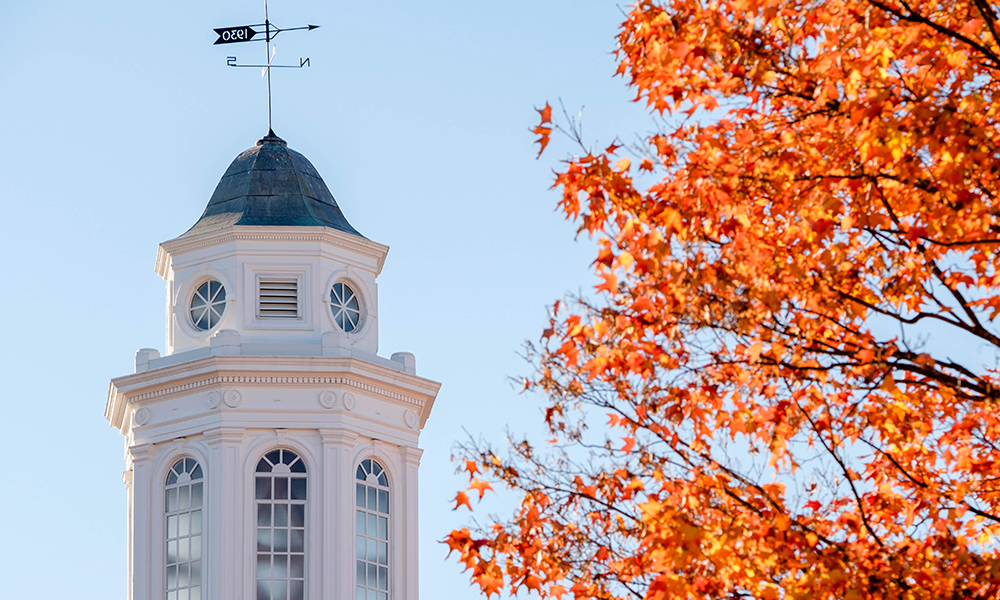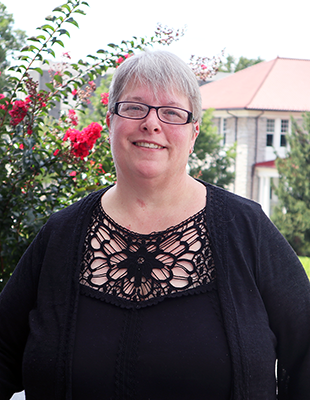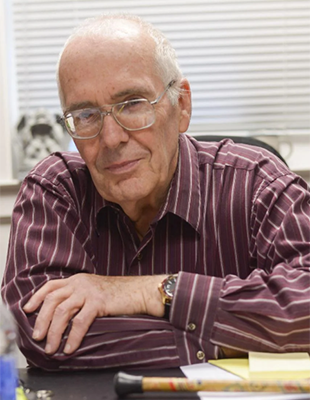Remembering those we’ve lost
News
SUMMARY: Last September, we lost two precious members of the College of Arts and Letters community. Join us in remembering their service and impact at JMU.
The College of Arts and Letters is a community. Though we work together as a team, we also value the tremendous impact of each individual. And when we lose a member of that team, that loss is profound. Last September, we lost two precious members of our community.
 Peggy Smith served as the Program Support Technologist in the Department of History since 2012. In 2020, she earned the CAL Outstanding Staff Award for her exceptional contributions to the History department and the college.
Peggy Smith served as the Program Support Technologist in the Department of History since 2012. In 2020, she earned the CAL Outstanding Staff Award for her exceptional contributions to the History department and the college.
Known for her work ethic and constant good cheer, Smith was a vital colleague to the faculty in the department and a beloved mentor to the History students. She served as co-chair and chair of the CAL Staff Advisory Committee, as a member of the Academic Affairs Administrative Staff Advisory Council and as an active member of the Central Virginia Branch (Mid-Atlantic Region) of the International Association of Administrative Professionals. She also served on the Employee Advisory Committee.
To recognize and celebrate her legacy, we created the Peggy Smith Professional Development Fund. The fund will be used to defray costs related to CAL staff professional development, such as taking certification courses, traveling to conferences and more. This fund is inspired by Smith’s generosity, her endless intellectual curiosity and her passion to learn more and to be better.
The fund currently has over $5000 in donations, and we look forward to growing that amount so that we can encourage our staff to pursue their goals and continue to honor Smith’s life and spirit.
 Mark Hawthorne served JMU for 48 years and retired in 2021. He earned the rank of full professor of English at age 35 and was the head of the department from 1974-1981, one of the youngest department chairs in JMU history.
Mark Hawthorne served JMU for 48 years and retired in 2021. He earned the rank of full professor of English at age 35 and was the head of the department from 1974-1981, one of the youngest department chairs in JMU history.
As technology advanced in the 1990s, Hawthorne evolved with it, reinventing himself as a teacher, scholar and colleague by learning operating systems, computer languages and software. In the early 1980s, Hawthorne was perhaps the only English faculty member with an office computer, and his goal was to lead faculty and students into the computer age. Reflecting this expansion, he became a Professor of Technical and Scientific Communication in 1999.
The accumulated impact of his teaching activities — including the number and different courses taught, workshops and student training sessions led, number of advisees, number of honors theses and master’s theses — cannot really be estimated. Safe to say he touched and improved the lives of thousands of students.
Intellectually curious, always energetic, often smiling, Hawthorne thrived through several transformative periods at JMU and across higher education. He never seemed to tire or grow bored with any of it. He continually re-invented himself and his work, challenging himself and others to grow and improve, the better to meet student needs in an ever-accelerating world. All the while, he helped to nurture and support the careers of a great many faculty members.
Hawthorne was a dear member of the WRTC family and JMU community, and we mourn his loss deeply.

